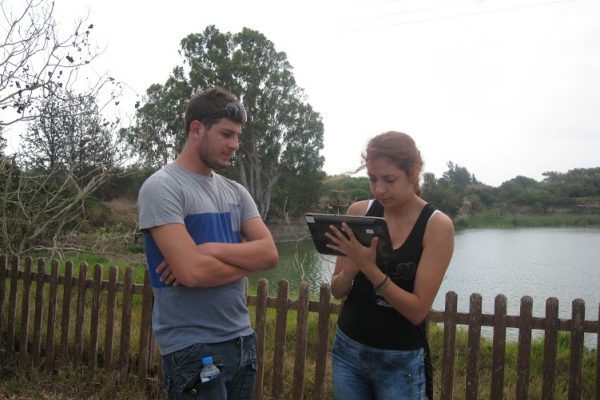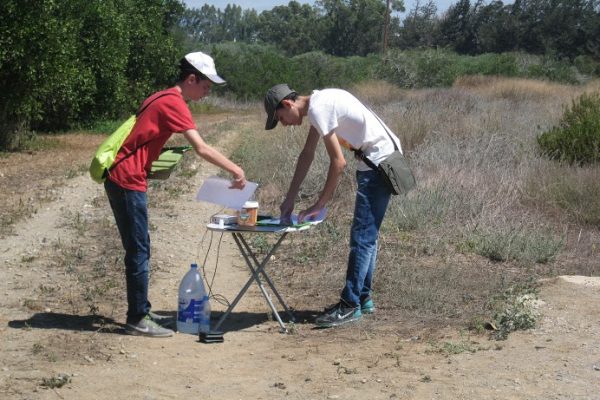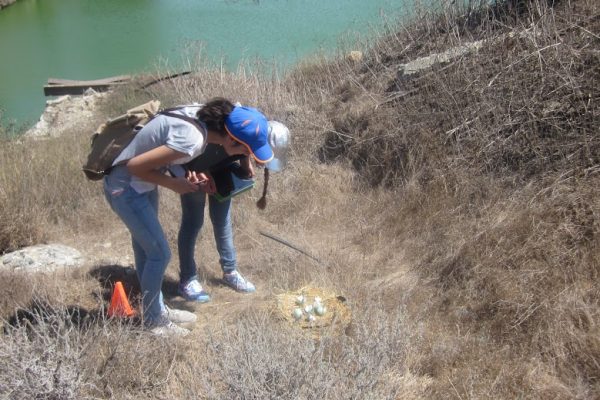“Mystery at the lake” is a locally-funded research project, which is focused on investigating the nature of immersion in location-based AR settings for environmental science learning. Employing a design- based approach, the overall goal of the project was to collect multiple empirical data through a set of iterative studies about the nature of students’ immersion in location- based AR settings, its relation to students’ environmental science learning as well as about the successful design of immersive location-based AR learning environments. As part of this project, the “Mystery at the lake” AR learning environment, which is addressed to middle and high school students, has been developed. The learning environment takes place by the Bishop’s lake in collaboration with the Cyprus Center for Environmental Research and Education (CY.C.E.R.E). As part of the design-based approach, the main efforts of the project were focused on the development of an evidence-based framework reflecting the conceptualization and valid measurement of immersion in location-based AR settings, the main learners’ characteristics mediating their immersive experiences as well as a set of design principles guiding the successful development of immersive location-based AR learning environments. This evidence-based framework has also guided the design and re-design, improvement and finalization of the “Mystery at the lake” AR learning environment.
Read more about the “Mystery at the lake” program for schools.
Focus: Immersion in location-based AR learning environments for environmental science learning
Funding: Locally-funded project
Status: Completed
Related Publications
Georgiou, Y. & Kyza, E. A. (2017). Investigating Immersion in relation to students’ learning during a collaborative location-based augmented reality activity In Smith, B. K., Borge, M., Mercier, E., and Lim, K. Y. (Eds.). (2017). Making a Difference: Prioritizing Equity and Access in CSCL, 12th International Conference on Computer Supported Collaborative Learning (CSCL) 2017, Volume 1. Philadelphia, PA: International Society of the Learning Sciences. [Long paper.]
Kyza, E. A., & Georgiou, Y. (2016). Digital tools for enriching informal inquiry-based mobile learning: The design of the TraceReaders location-based augmented reality learning platform. Paper presented at the Proceedings of the 3rd Asia-Europe Symposium on Simulation and Serious Gaming – 15th ACM SIGGRAPH Conference on Virtual-Reality Continuum and its Applications in Industry, VRCAI 2016, 195-198. doi:10.1145/3014033.3017432
Georgiou, Y., & Kyza, E. A. (2017). The development and validation of the ARI questionnaire: An instrument for measuring immersion in location-based augmented reality settings. International Journal of Human Computer Studies, 98, 24-37. doi:10.1016/j.ijhcs.2016.09.014
Georgiou Y. & Kyza, E. A. (2014). “Can you listen to my voice?” Including a student voice in the design of a chemistry module aiming to increase students’ learning and motivation. In Bolte, C., Holbrook, J., Mamlok-Naaman, R., Rauch, F. (eds.), Science teachers’ continuous professional development in Europe: Case studies from the PROFILES project. Berlin: Freie Universität Berlin. Print: University of Klagenfurt (Austria), 94-102.





